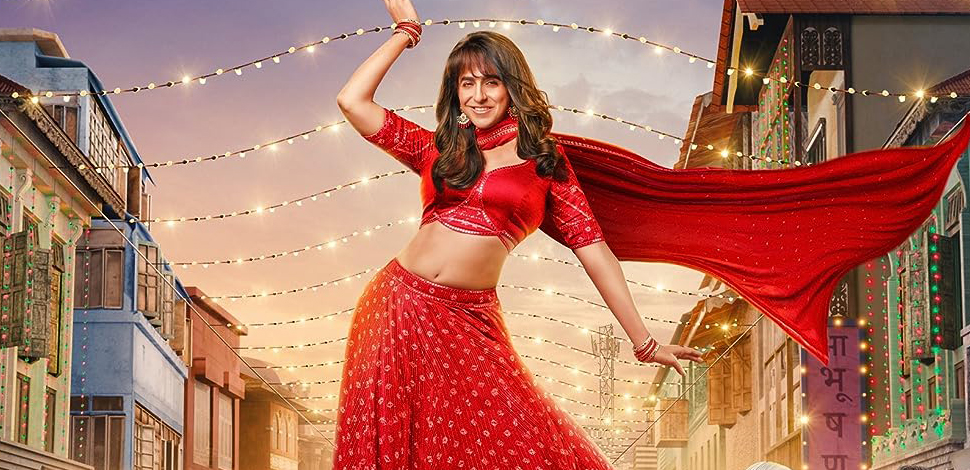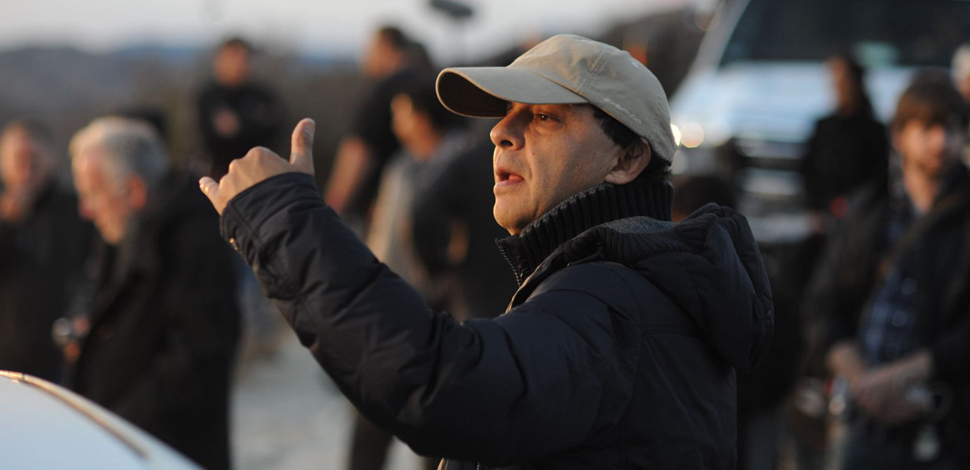Remember ‘Laal Ishq’ from RAM-LEELA? Well, you’re about to. ‘Aayat’ is a soulful Arjit Singh number that would be quite lovely were the structure not such a carbon copy of ‘Laal Ishq.’ It meanders here and there against the backdrop of some earthy percussion, a la Monty Sharma’s “Thode Badmaash” from SAAWARIYA. The song takes a break from that and veers right into qawwali territory. You know, like ‘Yun Shabnami’… also from Saawariya…
In the theme of keeping everything in the SLB family, ‘Ab Tohe Jane Na Doongi’ feels like the twin of ‘Tera Zikr’ from GUZAARISH. The conjoined twin. Very little is memorable from GUZAARISH aside from Aishwarya’s intense shade of lipstick and the bizarre assisted suicide party she hosts at the end. But this song brought it all back. It’s a sleepy, romantic duet that moves at its own tedious pace. Much like ‘Aayat,’ it’s instantly forgettable.
By the time I got to ‘Aaj Ibaadat,’ I was ready to tear my hair out. Because just like ‘Aayat’ it feels like a straight lift of ‘Laal Ishq.’ But once that hangover subsides, we’re left with a very pleasant composition laced with religious overtones, likening love to worship. But that’s if you can forgive the sheer laziness and lack of creativity. For those keeping score, that’s three songs down, three songs that are rehashes of SLB’s earlier work.
Now, I’m just going to be brutally honest and admit that I still have nightmares about HAPPY NEW YEAR, and the next track ‘Malhari’ is my nightmare come true. It follows the same structure as HNY’s ‘Satakali’ which is to say it’s a rapid assault of inane, forgettable lyrics with no discernible melody. It’s arguably the weakest composition of the lot, casually tossing aside the dignity and poetry of some of these other numbers in favor of generic crowd pleasing beats. My biggest fear is that this could be a song picturised on Ranveer’s Bajirao, and if that’s true, it would add a touch of unwanted silliness to the film. (Side note: Word informs me that ‘picturised’ is not a word. Good thing I’ve been using it my whole life.) Vishal Dadlani’s vocals are always interesting and never disappoint, but he and the film deserve more innovation than this.
Jazz has its standards, and so does classical Indian music. Which is why ‘Albela Sajan’ makes an appearance on this soundtrack. Yes, we saw an ‘Albela Sajan’ in HUM DIL… This one is more of a celebratory number with more fervent energy. There is nothing wrong with the song per se, except that SLB has used it before. I also have to say, this version sounds like a room of classical singers who are rehearsing, and are really happy about it.
In my mind, I pair ‘Albela Sajan’ with ‘Gajanana,’ the first single released from the album. I find it hard to comment on devotional songs, because they exist in a genre outside of film music. Plus they’re about God so I can’t make fun of them. This one’s ominous and makes you feel like something pretty intense is about to go down, much like ‘Deva Shree Ganesha’ did in AGNEEPATH. Rumor has it Priyanka dances in it. And by “rumor” I mean I read it in an interview with her makeup artist.
I’m no master of raags, but I’m willing to bet that ‘Mohe Rang Do Laal’ is based on the same raag as DEVDAS’s “Kahe Chhede Mohe.” Certainly not a bad thing, as I will take any excuse to watch Deepika dance. But this being the only classical song of the lot, I was hoping for more innovation a la ‘Deewani Mastani’ and less of a by-the-numbers mujra. Still, this is one of the stronger songs of the album and I have no doubt it will deliver visually. Just as an aside, writers should stop using lyrics like “marodi kalai mori” and “chhedo na” in these semi-classical numbers. We’ve heard them all before. Lyricists of India: There are so many Hindi and Urdu words and phrases to choose from! Let’s broaden our horizons, people! (Other annoying words and phrases: raahon, nigaahon, tere bin, jiya laage na, Mera Naam Mary Hai.)
Now, let’s get to those gems. I could go on and on about ‘Deewani Mastani.’ For me, it sits as one of the top three songs of the year, perhaps even beyond that. It’s unusual, a beautiful musical clash of drastically different Indian cultures, shot with spectacular precision and methodical design. This is the crown jewel of the album by far. (And a perfect opportunity for a product tie-in with a tiny guitar company.) ‘Pinga’ is by no means groundbreaking, but jubilant and unique enough to merit a place on the charts for a while. It’s hard not to tap your foot to this one, and it’s refreshing to learn a new word, even if there still doesn’t seem to be a consensus about what “pinga” means. People say this is a rip off of ‘Dola re Dola,’ but at this point, any song that isn’t inspired by “Laal Ishq” is welcome.
Finally! More innovation! And not a minute too soon. ‘Fitoori’ has a distinctly Marathi feel, and opts for a slow, sexy pace, with sudden bursts of insane, infectious energy. It feels like an item number, and if that’s the case, it’s certainly one of the more appealing ones in recent times. The vibe, the energy, the instruments in this number fit in perfectly with ‘Deewani Mastani’ and ‘Pinga.’ Listening to these three back to back make the film seem like a different animal altogether.
And there you have it. Look, I have no doubt that the visual treatment of the music will help soar it to dizzying heights, but it shouldn’t have to. This album should have been able to stand alone on the merits of its music. All that aside, BAJIRAO MASTANI promises to be everything moviemaking should be; majestic, ambitious, and grand. But filmmaking should also be about collaboration, and this is where Mr. Bhansali is his own worst enemy. Even the towering giants of Indian cinema knew to leave some things to the pros.
Review by:
Rit Saraswat
Twitter / Instagram @rit516






No Responses